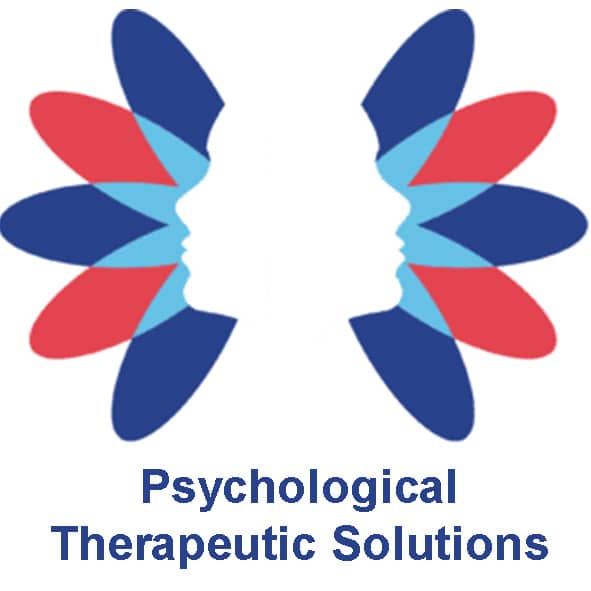The Emotional Impact of Hurtful Words and How EMDR Therapy Can Help
“Your anger will pass. Their scars may not.”
Words have power. While anger fades, the words spoken in those heated moments can leave deep emotional scars that linger for years. Many people assume this truth applies mainly to parents and children, but in our clinic, we see it just as often in adult relationships: between partners, friends, colleagues, or family members.
A single harsh phrase can stick, reshaping the way someone sees themselves, undermining confidence, and eroding trust in relationships. Unlike fleeting anger, the scars of words can last, and they can profoundly impact mental health.
Thankfully, healing is possible. Eye Movement Desensitization and Reprocessing (EMDR) therapy is an evidence-based treatment that helps people process and release the painful weight of past experiences, including the emotional impact of hurtful words.
Why Words Hurt So Deeply
Words are not “just words.” They can shape our sense of identity, our emotional wellbeing, and the way we navigate relationships. Here’s why hurtful words can feel like wounds:
1. They Create Negative Core Beliefs
When someone repeatedly hears “You’re worthless,” “You never get it right,” or “No one will ever love you,” those messages can sink in. Over time, they turn into deeply held self-beliefs such as:
- I’m not good enough
- I don’t deserve love
- I will always fail
These beliefs are incredibly painful, and they often drive patterns of anxiety, depression, perfectionism, or people-pleasing in adulthood.
2. They Activate the Stress Response
Hurtful words don’t just sting emotionally—they trigger the body’s stress response. The brain processes them as a threat to safety, activating the same fight, flight, or freeze reactions that appear in trauma. That’s why hearing certain words or tones can make someone feel panicked, small, or overwhelmed, even years after the original event.
3.They Damage Relationships and Trust
When harsh words are exchanged repeatedly, they erode the sense of safety in relationships. Instead of closeness and connection, partners may feel guarded, defensive, or resentful. Emotional intimacy becomes harder to maintain when words are used as weapons.
4. They Stay “Stuck” in the Mind
Even if someone rationally knows a statement isn’t true, the emotional charge of the memory can remain. A throwaway insult from a partner or parent can echo decades later, triggered by tone of voice, facial expression, or conflict. This is why so many people say, “I know it was years ago, but I can still hear their voice like it was yesterday.”
The Hidden Cost of Emotional Scars
Verbal wounds may not leave visible marks, but they can have profound long-term effects, including:
- Low self-esteem and shame.
- Heightened anxiety or depression.
- Difficulty trusting others.
- Anger and emotional outbursts.
- Physical symptoms like headaches, sleep problems, or tension.
This is why psychologists often refer to emotional abuse or repeated verbal attacks as a form of psychological trauma. And just like other forms of trauma, it deserves care, compassion, and healing.
How EMDR Therapy Helps Heal Emotional Scars
Eye Movement Desensitization and Reprocessing (EMDR) therapy is a structured, research-backed approach designed to help people reprocess painful experiences, so they no longer carry the same emotional weight.
What Is EMDR?
The following blog describes the process of EMDR: EMDR Therapy – What is it and how is it done! – Psychological Therapeutic Solutions – Lincoln
Unlike traditional talk therapy, EMDR does not require clients to retell their story in detail. Instead, it focuses on helping the brain process “stuck” memories, including the memories of painful words spoken in anger or abuse.
Benefits of EMDR for Verbal and Emotional Trauma
- Reduces emotional intensity of past experiences.
- Reframes negative beliefs (e.g., from “I’m not good enough” to “I am worthy”).
- Improves emotional regulation in current relationships.
- Restores self-worth and confidence.
- Promotes long-term healing rather than temporary coping.
A Hypothetical Case of the Impact of EMDR for Verbal and Emotional Trauma
Many clients describe EMDR as a way of finally letting go of words and experiences that have haunted them for years.
A person once said they couldn’t escape the words of a partner who repeatedly told them, “You’ll never be good enough.” Even after the relationship ended, those words replayed like a recording, affecting their confidence at work and in new relationships.
Through EMDR, they were able to revisit those memories in a safe, structured way. Over time, the words lost their sting. Instead of hearing, “I’ll never be good enough,” the client began to believe, “I am enough just as I am.” The emotional scars began to heal, and they felt freer in their daily life. They also were able to recognise that their partner had a problem with anger especially when too stressed at work. Having therapy helped them see that their partner may benefit from therapy or for them both to engage in couple’s therapy.
Finding Support at PTSolutions
At PTSolutions, we understand how deeply words can scar and how heavy it can feel to carry those wounds into daily life and relationships. Our team of highly trained EMDR therapists provides compassionate, evidence-based care to help you heal from the emotional impact of hurtful words, whether they come from childhood, intimate relationships, or other experiences.
We offer a safe, supportive environment where you can begin to process painful memories, release negative beliefs, and build a stronger, healthier relationship with yourself and others.
If you’re ready to move beyond the scars of hurtful words, we’re here to help. Get in touch with us today: Contact – Psychological Therapeutic Solutions – Lincoln
Final Thoughts
Harsh words may only take a second to speak, but their impact can last for years. While anger fades, the scars of words often remain, shaping self-worth, relationships, and wellbeing.
The good news is those scars don’t have to define you. EMDR therapy offers a path to healing, helping you release the pain of the past and reclaim a sense of confidence, calm, and connection.
At PTSolutions, we believe that no one should be defined by the worst words spoken to them. Healing is possible—and we’re here to support you on that journey.


















